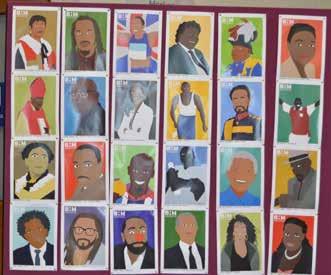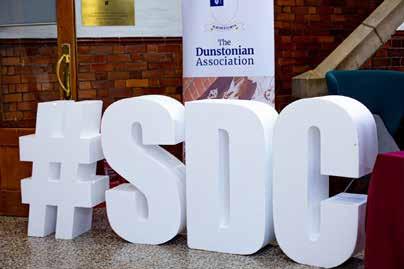SIXTH FORM Year 13 Symposium The Symposium exists to recognise the culmination of the two-year journey of Sixth Form Scholars from Year 11 to Year 13. The evening is a celebration of their work and a moment for Year 12 and younger years’ scholars to see the quality and range of the students’ thinking. Mr Iain Macdowall, himself a former student of the College, acted as guest judge alongside the Head of Sixth Form, Mr Alex Brewer. As ever there was a huge range of fascinating questions tackled, which is no surprise given the deep preoccupation of our Sixth Form with their studies. For example, ‘How well supported are the three main theories for how the universe will end?’; or ‘To what extent has globalization detracted from, or strengthened traditional dance around the globe?’; or ‘How effective would attempts to hold producers accountable for their role in fast fashion actually be?’ The standard of intellectual research and sense of balanced argument and insight were surely markers of the undergraduate level of work that these students are already achieving. The project that we awarded first prize caught our eye because of its sharpsightedness about a historical episode which many of us would not necessarily have known about, but in bringing it to our attention, the judges saw its relevance to many patterns of thinking today. Its title was ‘Understanding the rise of the ecofascist movement from its early conception in the 19th Century’ by Amelia Glendinning. The judges’ comments indicate its reach and significance: ‘What an arresting study of this not so well
110
S T D U N S TA N ’ S C O L L EG E
known, and yet troublingly influential, worldview. Stretching back to the European Romantic nationalist roots of the early 1800s through the ideas of Ernst Moritz Arndt, this fascist theory attaches ecological lenses of “Field & Forest” to the wider “Blood & Soil” racist propaganda of the Nazis. It then re-emerges in a new, equally troubling contemporary form in modern terrorist acts connected to Malthusian thinking about overpopulation and racial difference particularly in the USA, but also crossing many international borders. Turning an insightful light on this problem is exactly what excellent scholarship might do.’ Mr A Brewer Head of Sixth Form



















































